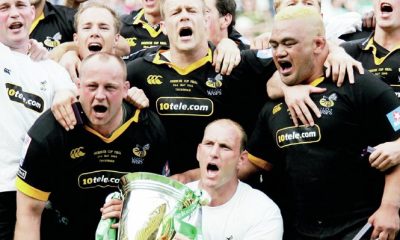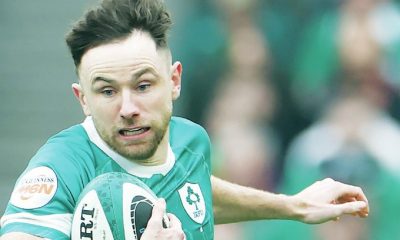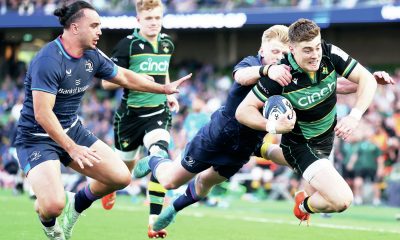
Black History month ended last weekend, along with our mini-series on black players in England, as October turned into November but it would be a shame not to go into added time so to speak and doff a cap in the direction of Quins, who over the decades have done more than most to promote black rugby talent.
For all the mickey taking Quins endured – at least in former years – of being an elitist toffs club, they were always among the most welcoming and cosmopolitan of teams who enjoyed a certain brand of expansive rugby and, above all, else the party and high jinks that followed every match.
Colour, class and profession just didn’t come into it at The Stoop, indeed that egalitarian approach helped define the club.
The extrovert wing John Coker, the Olympic boxer and speed merchant from Sierra Leone – was the trailblazer in the 1960s but others followed, most of them absolute speed machines.
In the mid-70s came Eddie Quist Arcton, who also cut a dash for Oxford University with an extraordinary half swerve, half sidestep out of the David Duckham coaching manual.
Another star turn in the mid-70s was the extrovert Pio ‘Bosco’ Tikoisuva, who had caught the eye on Fiji‘s tour of Britain in 1970 and was recruited by the club when he was in London at the start of his diplomatic career.
‘Bosco’ used to form a lively midfield partnership with the very young Clive Woodward who was a fly-half by preference in his Harlequins days and the Fijian enjoyed his finest moment when he starred in their national side when they defeated the 1977 Lions.
During the mid-1980s Quins were awash with spectacular running wings such as Mike Wedderburn, Everton Davies, Everton Weekes and Andrew Harriman. That right there is an almost international quality 4x100m quartet. Serious wheels the like of which you don’t often see and attacking weapons Quins used to full effect.
Only Harriman eventually earned a full England cap – just the one against Australia in 1988 when he enjoyed a stormer – before being banished forevermore although he did return from the wilderness to star in England’s World Cup Sevens-winning squad at Murrayfield in 1993.
The powerful, long-striding Wedderburn, English-born but of Barbadian stock, looked the real deal and it was surprising that an England B cap was his only reward. Wedderburn went on to work for Channel 4, ITV, BBC and Sky Sports as a presenter.
The two Evertons, meanwhile, caused absolute carnage on the Sevens field with Harlequins being virtually unbeatable between 1986-1990 when they took five consecutive Middlesex Sevens titles. Davis also starred in their 1988 John Player Trophy win over Bristol, and showing up well in that final win was robust openside flanker Tim Bell, who used to leave a few dents in the opposition.
Since then the considerable conveyor belt has continued, including stars such as Peter Mensah, Ugo Monye, Kyle Sinckler and Gabriel Ibitoye, who could loosely be termed homegrown talents, and Marland Yarde who arrived from London Irish.
BRENDAN GALLAGHER


Champions Cup
Bordeaux Begles accused of Henry Pollock vendetta

Latest News
Lamb support for Champ changes

Latest News
GB to cut its sevens project

Latest News
Call for concussion protocols to be revised
























You must be logged in to post a comment Login